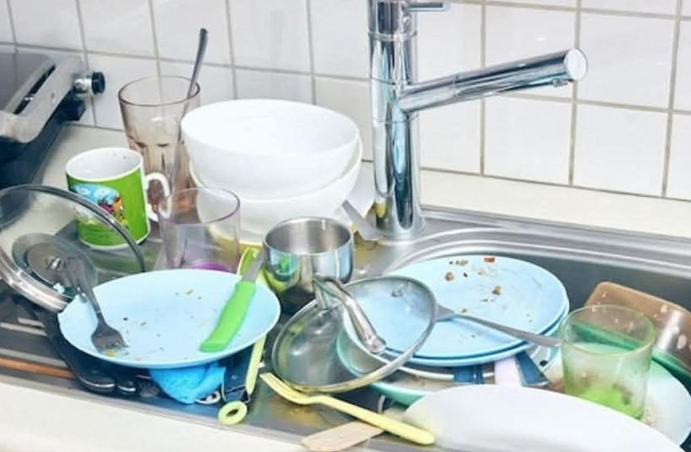The condition of our living spaces often mirrors our inner thoughts and emotions. A routine task like washing dishes can reveal much about our mindset, daily routines, and overall emotional health. If you’ve ever pondered why some individuals allow dirty dishes to accumulate in the sink and how this habit influences their lives, this exploration delves into the significance of this behavior and the importance of managing it effectively.
Why Dirty Dishes Pile Up: A Psychological Perspective
The tendency to leave dishes unwashed can stem from various psychological factors, including:
- Overwhelm from Stress or Fatigue
Exhaustion, whether physical or mental, can make even simple chores like dishwashing feel daunting. A hectic schedule or heavy responsibilities may leave little energy for tackling household tasks.
2. Tendency Toward Procrastination
Delaying dishwashing isn’t limited to household chores—it often reflects a broader habit of procrastination. For some, cleaning dishes feels like a tedious or unimportant task, hinting at challenges with time management or prioritization in other areas.
3. Emotional Struggles and Mental Health
A sink full of unwashed dishes can signal deeper emotional challenges, such as anxiety or depression. During tough times, maintaining a tidy home may slip down the priority list, reflecting a person’s emotional state.
4. Absence of Consistent Routines
For those without structured daily habits, keeping up with chores like dishwashing can be difficult. A lack of organization in daily life often translates to a disorganized home environment.
The Benefits of Keeping Dishes Clean
Allowing dirty dishes to stack up can have repercussions for both physical health and mental clarity. Here are compelling reasons to stay on top of dishwashing:
- Maintaining a Hygienic Environment
Food residue on dishes can foster bacterial growth and attract pests like ants or cockroaches. Lingering odors from unwashed dishes can also spread throughout the home, creating an unpleasant atmosphere.
2. Easing Mental and Visual Clutter
A messy kitchen can contribute to feelings of overwhelm and unease. A pile of dirty dishes may evoke guilt or frustration, negatively impacting mood and focus.
3. Fostering Discipline and Well-Being
Washing dishes promptly after meals cultivates discipline and a sense of accomplishment. A clean kitchen promotes a healthier mindset and reinforces positive self-care habits.
4. Enhancing Household Harmony
In homes shared with others, a sink full of dishes can spark tension among family members or roommates. A tidy kitchen encourages smoother interactions and a more peaceful living environment.
Final Thoughts
Washing dishes is more than a mundane chore—it’s a window into our habits, discipline, and emotional health. While leaving a few dishes in the sink occasionally is no cause for concern, letting them pile up can impact hygiene, mental clarity, and relationships at home.
By making an intentional effort to keep the kitchen clean, you can unlock benefits like a brighter mood, a stronger sense of control, and a more harmonious home. How do you approach dishwashing in your daily routine?




